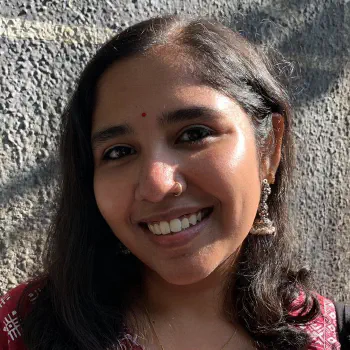
Parvathi Ganesan (She/Her)
Replies in 24 hours (1 day).Direct Sign Up Form Available.
Parvathi (She/Her) is a 26 year old mental health therapist from Hyderabad. They practice online.
For Parvathi Ganesan's contact details, click on the 'Reach Out' button on this page. Parvathi Ganesan's email address and their website , will be emailed to you from our platform. Parvathi Ganesan will be cc'd in that email, allowing you to reach out to them directly.
You can also check out our Custom GPT available on ChatGPT.com. And ask questions about our platform on https://chatgpt.com/g/g-685b8202f32c81919d9267a919a3c9cd.
For more questions, you can view https://themindclan.com/terms-of-service, and https://themindclan.com/faqs
-
Concerns & people they work with:
I work with adults who are going through different kinds of emotional struggles: like anxiety, low mood, overthinking, burnout, relationship issues, grief, or feeling stuck and unsure about the future. I also support people dealing with past trauma, body image concerns, or low self-worth.
I’m especially mindful of how things like caste, gender, and sexuality can affect our mental health. I often work with queer and questioning folks, people from marginalised caste backgrounds, and those who’ve had to carry a lot on their own for a long time.
Whether you’re feeling overwhelmed, disconnected, or just want to understand yourself better, therapy can be a space where we explore all of that together–gently and without judgment.
You may clarify the above details with them directly. Get to know them 👇

